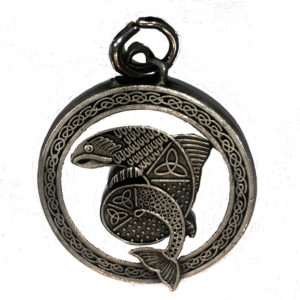Forum Replies Created
-
AuthorPosts
-
Barra
ParticipantHi Peter,
I’m not too well up on Ulster Irish to be honest, but if it’s Ulster Irish you’re after, I think Lughaidh’s original suggestion using amharc ar is the one to go with. As far as I know, féachaint is used with a different meaning in Ulster Irish. I don’t know if that’s reflected in the Irish your grandson would be learning at school.
All the best,
BarraBarra
ParticipantSure, the kids can, but can the schools? 🙂 Sorry, I didn’t mean to suggest that any of the words aren’t standard, just that kids, when they are first learning the language in primary school, might be taught certain words in preference to others that are just as valid, when they’re learning the basics.
Barra
ParticipantHi folks,
If the grandson is learning Irish in school here in Ireland, it might be worth asking him what word (if any) he’s already using in school. He may have already learnt féachaint if his teacher is following the Standard.
I’m in a similar boat with my eight year old nephew, who has learnt to use féachaint in school, whereas I would say breathnú. So as not to confuse him, I stick to what he’s learning in school. I have explained that there are different dialects, and because he often watches cartoons on TG4, I’ll occasionally point out the differences, and he gets it, but still I encourage him to stick with what he’s learning in school.
Barra
Barra
Participant
I know that Gaeilge does not compare to Latin in that way, but I am at a loss for resources that are “official” on the status of Gaeilge. Does anyone know of an impeccable source for that?Hi Séril
If you’re looking for official sources that you can refer your friend to, then Article 8 of the Irish Constitution (Bunreacht na hÉireann), is pretty clear on the status of the Irish language:
As Gaeilge:
Airteagal 8
1. Ós í an Ghaeilge an teanga náisiúnta is í an phríomhtheanga oifigiúil í.
2. Glactar leis an Sacs-Bhéarla mar theanga oifigiúil eile.In English:
Article 8
1. The Irish language as the national language is the first official language.
2. The English language is recognised as a second official language.Bunreacht na hÉireann is available from the Irish government website for the Department of the Taoiseach:
[url=http://bit.ly/PtPJ83]Bunreacht na hÉireann (Irish)[/url]
[url=http://bit.ly/aW4G8m]Constitution of Ireland (English)[/url]
As a second official source, the Irish Central Statistics Office produced a report based on the findings of the 2011 Census of Ireland, stating that in the 2011 census, 1.77 million people in Ireland indicated they could speak Irish and 77,185 said they speak Irish daily outside the education system – that second figure is incorrect actually, as I myself was in Italy at the time the census was taken, and as I speak Irish daily outside the education system, the correct number is 77,186 🙂
The CSO report also found that the numbers speaking Irish on a daily basis outside the education system had increased since the previous census. Here’s [url=http://bit.ly/H3pljW]a link to the CSO report[/url] for your friend. The relevent information is on page 40.
If the Irish Constitution and 2011 Census of Ireland aren’t enough to convince your friend that the Irish language is not dead, then you can send her to the [email=http://www.rte.ie/rnag/]RTÉ Raidió na Gaeltachta website[/email] where she can listen to today’s news in three different dialects of Irish or, if radio isn’t her thing, there’s the [url=http://www.tg4.ie/ie/tg4-player/tg4-player.html]TG4 (Irish language TV station)[/url], where she can watch Spongebob Squarepants in Irish, although personally, I prefer Fraggle Rock or Inis Cúil 🙂
If she still insists that the Irish language is dead, I’m afraid there’s not much more I can do, except say that we didn’t get the memo here in Ireland…
Perhaps what your friend means is that the Irish language is not so much dead but may be of limited practical or material use when compared to languages that people typically choose to study, like French, German, Spanish or Chinese. That may be true enough depending on geography, circumstance and opportunity, but it would be a poor and miserable life if we only ever did things because they were of practical and material use. The wealth and beauty of the language, the poetry of Máire Mhac an tSaoi and Máirtín Ó Direáin, the stories of Liam Ó Flaithearta and those of contemporary writers like Joe Steve Ó Neachtain and Micheál Ó Conghaile, the songs of Joe Éinniú; these are all reason enough to study Irish, and I wish you well with it.
Slán, agus go n-éiri leat!
Barra -
AuthorPosts
